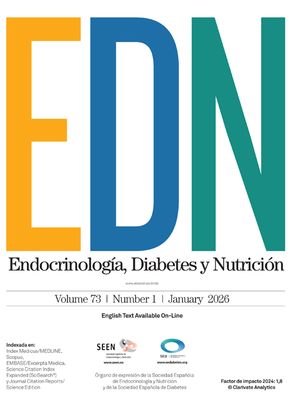There is no doubt that in current society it is impossible to live, and even work less, inside a bubble that protects us from any external influence. And since the scientific process is based on trust and credibility, biomedical journals should use the statement of potential conflicts of interest (CoIs) to guarantee process transparency.1,2 Language is rich, and conflicts are diverse, and CoIs are therefore also known as competitive loyalties, opposing interests, or dual commitments. Despite the negative connotations apparently associated to statements of CoIs, they are an indispensable tool which not only does not impair, but may also reinforce the prestige of those who declare them.
According to the International Committee of Medical Journal Editors (ICMJE), there is a CoI when an author (or his/her center), a reviewer, or an editor has a financial or personal relationship, or a competition in the academic or intellectual passion setting that unduly influences his/her actions. CoIs may lead to bias in study design, analysis and/or interpretation.3 It is therefore clear that statement of CoIs affects all people involved in the editorial process, not only the author.4–6 Noncompliance with this responsibility has shaken the confidence of the general public, healthcare professionals, and scientists in the medical literature published in peer-reviewed journals.4–6 It should also be noted that the CoI exists regardless of whether or not an individual thinks that such relations affect his/her scientific judgment.
Statement of CoIs has been considered essential to guarantee the credibility of the scientific process in the past 15 years.4–6 However, medical journals do not still address systematic and uniform statement of CoIs. A relevant part of the excellence process undertaken years ago by the different editors of Endocrinología y Nutrición is clarification of the policy on CoIs.
A problem that hinders standardization of CoIs is that journals usually have different rules regarding their declaration, which may cause confusion and increase skepticism in readers who find different information on the same author depending on the journal.7 Among the recent efforts to improve the quality of the scientific process, use of uniform tools to declare CoIs, so that each author has a single consistent document that may be updated over time, has become especially popular.2,8 Thus, the ICMJE proposed in October 2009 use of a common instrument to report CoIs. This is a complex and detailed electronic form with various sections. Potential CoIs related to the work submitted, which are described within an indefinite time frame, are first addressed. Potential general CoIs in the last 3 years are then addressed, even if they have no direct relationship to the current work. Other significant areas include the potential financial relations of relatives and any possible non-financial CoIs (academic competition, etc.). There are specific sections to declare financial contributions received by researchers either directly or through their institutions. Income should be declared irrespective of the amount.
The final idea is to facilitate the editorial process, to make it more reproducible and systematic, and to avoid inconsistencies in reporting of CoIs.2,8
The main limitation of this approach is that importance of the truly relevant CoIs (those of interest for both editors and readers) may be diluted in a long list that does not affect the research made in any way. In addition, routine publication of all potential CoIs of all authors may consume too much editorial resources and occupy a substantial space in the journal. This is why not all CoIs reported by the authors are finally published. The final decision is the responsibility of editors, who decide when the potential CoIs are relevant for adequate evaluation of an article and when they should be published to be known by the readers.3
Statement of CoIs, as previously discussed, not only affects authors, but also reviewers and editors themselves. Thus, there is still a long and difficult way ahead. Results of a survey that focused on national cardiovascular journals of the European Society of Cardiology show that only one-fourth of the journals have policies regarding CoIs of reviewers, and that half of them only ask reviewers to refuse the invitation if any potential CoI exists.2 Exclusion of reviewers secondary to the existence of CoIs is very uncommon. Finally, more than 80% of the journals have no policies related to declaration of CoIs by editors that may lead to delegate decisions to other editors or associated editors.
To sum up, we think that, as editors of a medical journal, we should see to it that statement of any potential CoIs allows for improving the transparency of the scientific process and the credibility of the information provided. It is a question of recognizing that interests, and also conflicts of interest, exist, that they are not concealed or masked, because readers should be able to assess the actual conditions in which the work presented has been conducted. Rather than a negative connotation, we want to convey the idea that statement of CoIs should be taken as an example of the integrity of the author and his/her co-authors which positively redounds to the quality of the scientific process and the credibility by readers.
Please cite this article as: Lecube A, Halperin I, Mauricio D. La burbuja no existe, los conflictos de intereses sí. Esfuerzos para mejorar la credibilidad del proceso científico. Endocrinol Nutr. 2014;61:443-444.




